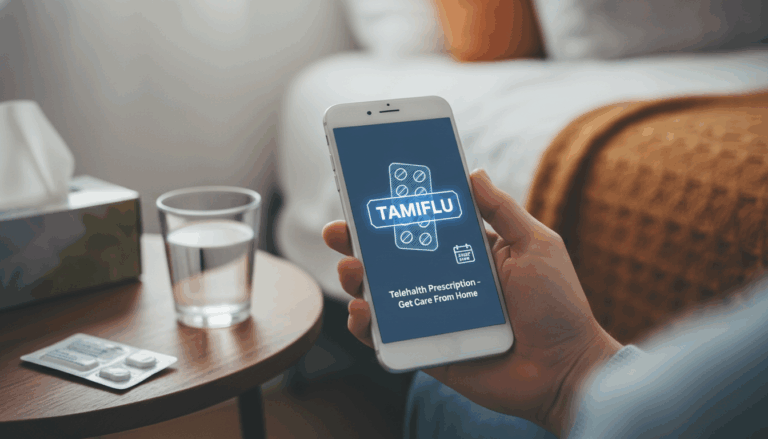It’s no secret that stress can affect your body and mind, and the best way to take care of it, is to be able to recognize what is happening to you. Remember, your mental health is JUST as important as your physical health, and we will always be there to help you.
We’re going to talk to you about the most common stress induced illnesses and some common treatments. It is important to note that these treatments aren’t cures, they are everyday things you can do yourself at home. If you’re facing major physical symptoms of stress, please seek a professional Medical Provider. Stress is a normal and natural part of life. You can’t always control what’s causes it but you can control how you react to it. There are two main types of stress:
- Acute stress. This is short-term stress that goes away quickly. You feel it when you slam on the brakes, have a fight with your partner, or ski down a steep slope. It helps you manage dangerous situations. It also occurs when you do something new or exciting. All people have acute stress at one time or another.
- Chronic stress. This is stress that lasts for a longer period of time. You may have chronic stress if you have money problems, an unhappy marriage, or trouble at work. Any type of stress that goes on for weeks or months is chronic stress. You can become so used to chronic stress that you don’t realize it is a problem. If you don’t find ways to manage stress, it may lead to health problems.
An interesting fact most people don’t know is stress isn’t always bad. In small doses, it can help you perform under pressure and motivate you to do your best. But when you’re constantly running in emergency mode, your mind and body pay the price.
If you frequently find yourself feeling frazzled and overwhelmed, it’s time to take action to bring your nervous system back into balance.
You can protect yourself—and improve how you think and feel—by learning how to recognize the signs and symptoms of chronic stress and taking steps to reduce its harmful effects.
- Heart disease: how you manage your stress is important. According to the American Heart Association, stress is a common factor that increases your risk of heart disease (the leading cause of death in Americans). Smoking, overeating, drinking, and physical inactivity are all factors that contribute to heart disease and are all results of stress. Eating a balanced diet and exercise can help lower your risk of heart disease. In fact, exercise is used to manage stress!
- IBS (or Irritable Bowel Syndrome), is another stress caused illness. IBS is categorized by abdominal.pain, gas, diarrhea, and constipation. According to ADAA (Anxiety and Depression Association of America), anxiety and stress can worsen a simple stomach, and turn it into IBS, and affects over a million Americans. It’s estimated that 70% of people who suffer from IBS or other gastrointestinal problems, don’t get the help they need. Managing your diet, lifestyle, and stress can help reduce IBS symptoms in non-severe cases.
- Stress can also contribute to obesity. It wasn’t until recently that obesity and stress were scientifically linked together. There are a few contributing factors: the first is eating an inadequate diet. The higher the stress, the more “comfort food” someone will want to eat. Eating those carbohydrates releases serotonin, the body’s feel good chemical. The more you eat, the better you feel. On top of that, the higher your stress, the more cortisol is released. Cortisol is a critical hormone when it comes to fat storage and energy use. It’s also known to increase appetite, therefore encourage not so healthy cravings. And finally, according to recent studies, when you’re under stress, your body will process foods differently.
How to manage your stress
Exercise
Getting up and moving will help your blood flow! While under stress, it’s easy to curl up under a blanket and not move for a few hours or even a whole day. Getting up and going for a walk will help you out. In fact, exercise is the number one natural way people destress! Whether it’s lifting weights, going for a run, swimming, or boxing, sweating out the stress can really help. Upping your activity level is one tactic you can employ right now to help relieve stress and start to feel better. Regular exercise lifts your mood and serve as a distraction from worries, allowing you to break out of the cycle of negative thoughts that feed stress. Rhythmic exercises such as walking, running, swimming, and dancing are particularly effective, especially if you exercise mindfully (focusing your attention on the physical sensations you experience as you move).
Connect to others
The simple act of talking face-to-face with another human can trigger hormones that relieve stress when you’re feeling agitated or insecure. Even just a brief exchange of kind words or a friendly look from another human being can help calm and soothe your nervous system. So, spend time with people who improve your mood and don’t let your responsibilities keep you from having a social life. If you don’t have any close relationships, or your relationships are the source of your stress, make it a priority to build stronger and more satisfying connection
Engage your senses
Another fast way to relieve stress is by engaging one or more of your senses—sight, sound, taste, smell, touch, or movement. The key is to find the sensory input that works for you. Does listening to an uplifting song make you feel calm? Or smelling ground coffee? Or maybe petting an animal works quickly to make you feel centered? Everyone responds to sensory input a little differently, so experiment to find what works best for you.
Learn to relax
You can’t completely eliminate stress from your life, but you can control how much it affects you. Relaxation techniques such as yoga, meditation, and deep breathing activate the body’s relaxation response, a state of restfulness that is the polar opposite of the stress response. When practiced regularly, these activities can reduce your everyday stress levels and boost feelings of joy and serenity. They also increase your ability to stay calm and collected under pressure.
Prioritize your tasks
It’s easy to feel overwhelmed when you’ve got a jumble of things on your plate! Prioritizing and making lists will definitely help you stay organized!! A lot of people even keep stress journals! Writing down what is stressing you out and working through everything is a good visual. Not over committing yourself to tasks will help keep your hands free. And checklists will help you figure out what needs to get done and what has already been done!
Get your rest
Feeling tired can increase stress by causing you to think irrationally. At the same time, chronic stress can disrupt your sleep. Whether you’re having trouble falling asleep or staying asleep at night, there are plenty of ways to improve your sleep so you feel less stressed and more productive and emotionally balanced.
Eat Healthy
With illnesses such as IBS and Heart Disease, making sure you’re eating correctly can significantly decrease your chances of getting them. And with obesity, what you eat is LITERALLY a main part of managing. Making sure you eat low in fat food, less sugar, and more greens is important. Try out meal prepping your lunches and snacks instead of putting a frozen meal in the microwave or grabbing a cookie!! This ensures that you already have healthier options to pick from right in front of you!! Meal prepping is also a way to destress and unwind. Some people find that cooking helps lower their stress!! Avoiding caffeine and alcohol is also another important factor in reducing stress.
Call a suicide hotline if you have thoughts of suicide.
Call your Health Care Provider if you feel overwhelmed by stress, or if it is affecting your health. Also call your Medical Provider if you notice new or unusual symptoms. Reasons you may want to seek help are:
- You have feelings of panic, such as dizziness, rapid breathing, or a racing heartbeat.
- You are unable to work or function at home or at your job.
- You have fears that you cannot control.
- You are having memories of a traumatic event.
Your Medical Provider may refer you to a Mental Health Care Provider. You can talk to this professional about your feelings, what seems to make your stress better or worse, and why you think you are having this problem. You may also work on developing ways to reduce stress in your life.
Managing stress is a common thing adults go through. Sometimes it may seem nearly impossible, like the whole world is on your shoulders. This can cause some serious illnesses that make it even harder to do your day to day tasks.
Stress management is often overlooked and downplayed, but we’re here to tell you that it’s important. Aside from the stress management skills above, it’s important to take some much needed time for yourself everyday to relax and unwind. Your mental health is just as important to us as your physical health!

